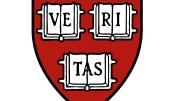Harvard undergraduates resuming classes for the new semester today may be surprised by the announcement, contained within College dean Rakesh Khurana's welcome-back message, that the revised General Education curriculum, scheduled to begin in the fall of 2018, has been postponed a full academic year. He wrote:
As we begin the new semester, I also want to update you on the new College academic requirements, which were originally scheduled to take effect in Fall 2018. These requirements, which include a four-course General Education requirement, a three-course distribution requirement, and a quantitative facility requirement will now take effect in Fall 2019. We believe the extra year will allow the revitalized Program in General Education to launch with a larger number and broader range of exciting new courses. In the meantime, you will continue to have the flexibility of either graduating under the older General Education requirements or taking courses in the current Program in General Education as you plan to fulfill the new College requirements. You will also continue to have the option to take a broad range of departmental courses to fulfill some of the current General Education requirements. For more information, please see…the Gen Ed website, which offers specific advice for each class.
[February 2, 2018, 12:45 p.m.: Note that this post is significantly extended and updated based on new information; please see the section added at the bottom of the article.]
The review and revision of general education was the Faculty of Arts and Sciences’ principal focus on undergraduate education and curricular matters in recent years. In 2015, a report on the curriculum found that hundreds of departmental courses had been grandfathered for general-education credit, and that purpose-built courses for this required quarter of the undergraduate course of study suffered from lack of support from development through teaching. In the event, the faculty enacted a new program in general education, reducing the required courses from eight to four, plus a three-course distribution requirement (arts and humanities; social sciences; sciences and engineering) and a new required course meant to equip students with “quantitative facility.” Developing the latter, dubbed “Thinking with Data,” proved difficult.
But until now, there was no indication that the legislated deadline [Updated February 2, 10:05 a.m.: Although the fall 2018 target date was widely discussed and assumed, it was apparently not legislated, and so was subject to revision, as in the present case; we regret the reporting error.] for the new curriculum to come into effect, beginning this coming fall semester, would be delayed—nor that the cause might be one of the problems (insufficient courses developed) that plagued the program it is intended to succeed. No further comment has been offered by the College dean’s office; other perspectives have been sought. Check back for updates.
Updated January 23, 10:00 a.m.: No further comment has been received from the dean of undergraduate education. The Harvard Crimson reported this morning that an email from the Program in General Education declined to comment. It appears that the news came as a surprise to faculty members involved the 2015 review of general education that ultimately resulted in the now-delayed, redesigned curriculum.
Updated February 2, 12:45 p.m.:
Although the legislation adopted by the faculty in the spring of 2016 prescribed a new framework for general education, its statement of purpose, quoted here, is broad rather than sharply defining, and not readily actionable in shaping qualifying courses:
The Program in General Education lies at the heart of the intellectually transformative mission of Harvard College and seeks to prepare students for meaningful lives of civic and ethical engagement in an ever changing world. Courses in the Gen Ed curriculum transcend disciplinary limits, challenging students to make intellectual connections across boundaries. They ask students to grapple with complex and fundamental questions in order to teach students to discern meaning, imagine possibilities, and ask better questions of themselves and of others. Gen Ed courses help students to understand the deep relationship of scholarly work to some of the most important aspects of life beyond college. Gen Ed aims to produce practical wisdom: it asks Harvard students to consider how they will best use their liberal arts and sciences educations, and their lives, in the service of both knowledge and humanity.
Getting the new program right, and populated with the right kind of distinctive courses, matters, after the problems that plagued implementation of general education earlier in this decade—as documented in the 2015 review.
After the initial publication of this article, associate dean of undergraduate education Stephanie Kenen, administrative director of the program, released this statement to the magazine:
The College decided on a new start date for the newly revised Program in General Education in order to give faculty time to develop a sufficient number of new courses. Part of the reason for the change to the requirements was to enable the Program to craft a distinct identity in the minds of students and faculty alike. If the Program is to have a distinct and clear identity, it’s important to have a critical mass of courses designed anew, with the goals of Gen Ed front and center. Faculty are creating courses that are not the same as what they would teach in their departments, and designing courses from the ground up takes time and resources. The Bok Center is focusing their attention on supporting the development of new courses for Gen Ed, and departments are looking at their curricular plans to see how they can best contribute.
It may also merit noting that the faculty chair of the standing committee on general education is relatively new to the post: professor of psychology Jason Mitchell assumed that responsibility at the beginning of this academic year, a critical period for shaping the new program and perhaps refining that “distinct identity”—the absence of which, it was felt, did much to vitiate general education in recent years.









